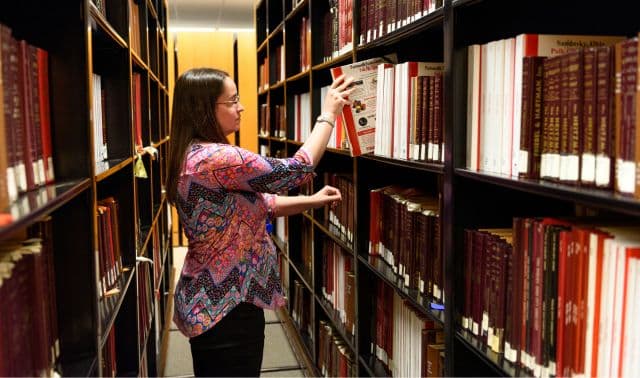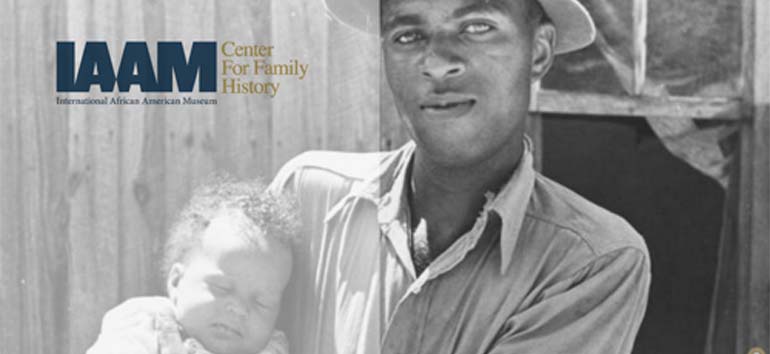So you’ve got a brick-wall family tree problem that only some out-of-town research will solve. And you’ve also got your mortgage, retirement account, kids’ college tuition and maybe your doctor’s vacation home to fund. Do you have to let the brick wall stand? No way!
Some travel-related bargain-hunting is in order. I’ve had do a bit of voyaging for my genealogy and photo research business, and I’ve secured a reputation in my family of tracking down and pouncing upon minimum-cost traveling options. Whether you’re on the family history trail in the United States or in foreign lands, I’ll let you in on my tried-and-true ways to take research trips without going broke.
1. Find free travel advice.
I’ve found the No. 1 time- and money-waster is not being prepared for a trip. Create a logistics itinerary with travel arrangements, lodging details and food options so you don’t end up paying for a cab, say, when you could’ve caught a bus for $1.50.
That’ll require advance research. But instead of buying guidebooks, use the ones from your public library. Contact the visitors bureau for your destination—you’ll find it through a Google search on the name of the city, state or country and the word tourism, or by checking the Destination Marketing Association International Directory. The bureau’s staff can suggest hotels, restaurants and side trips. For help planning a trip to the Family History Library, see the Salt Lake Convention and Visitors Bureau Web site. Members of AAA can get local maps, travel discounts and help from travel agents. Also eligible for special rates are members of the AARP.
You also can do some armchair travel planning with budget tips on the Web sites of guidebook publishers such as
Lonely Planet,
Frommer’s Budget Travel,
Fodor’s and
Let’s Go. Each site offers a variety of assistance, including reviews, travel writers’ blogs and online forums.
If you start planning early enough, you’ll have time to get in touch with members of a genealogical society at your destination for advice on places to stay, park and eat. (You might even get offers of help locating your ancestral cemetery.) Run a Google search or find the society’s listing on the county’s
USGenWeb site.
2. Budget carefully.
Setting a realistic budget (and sticking to it) will free you from that awful feeling of hemorrhaging money. Your pre-trip planning should include determining what you’ll need to spend money on and about how much each component will cost. Use your free travel resources from tip 1 to investigate prices. You also can get an idea of what’s reasonable using the
General Services Administration’s per diem rate chart (look under Travel Management) of how much the government reimburses employees for lodging and meals in various areas. Make sure you budget for:
- transportation to and from your research destination
- lodging
- meals and snacks
- getting around once you’re there (don’t forget parking)
- research expenses (such as admission fees and photocopies)
- other sightseeing you’re planning
3. Get there cheaply.
Dirt-cheap airline tickets are a thing of the past, but starting early gives you time to explore Web-only fares, vacation packages and other deals. Being flexible helps, too: You might be able to take advantage of a special fare if you’re willing to leave on a Friday rather than a Saturday, for example, or fly out of a nearby city. Try to book on a Tuesday or Wednesday, when fares tend to be cheaper. Experiment with searching for a flight alone and in combination with a hotel and/or rental car.
Compare rates on sites such as
Travelocity,
Last-Minute Travel,
Expedia and
Cheap Tickets. A meta-search engine such as
Farecast or
Kayak will search several travel sites at once. (To see rates for discount airline
Southwest, though, you’ll have to use its own site.) Consider a site such as
Priceline.com, which lets you bid on plane tickets and hotel rooms. Start low and work your way up—once your bid is accepted, you’re locked in. Before finalizing your purchase on any travel site, be sure you read the fine print for information on fees and to see what your options are if your plans change or a flight is cancelled. (You may be able to avoid fees on these sites by finding the best rate there, then seeing if the airline can match it.)
In this age of added fees for everything from baggage to on-board beverages, it’s important to travel light. Several airlines charge for checking one bag; most tack on fees for additional luggage and suitcases weighing more than 50 lbs. Consult Kayak.com’s fee chart and stop the nickel-and-diming with these tips:
- Reserve online. Some airlines charge for booking by phone.
- Pack light. It’s OK wear a shirt twice. Take clothes you can hand wash and hang to dry.
- Go digital. Maximize space by carrying your family history files on a flash drive or laptop.
- Avoid high-priced airport and in-flight fare. Bring food for the plane, but make sure you comply with food- and beverage-related security requirements. Put an empty water bottle in your carry-on and fill it at a drinking fountain after you go through security.
Flying isn’t your only option. Consider carpooling with a group of researchers and search for bus and rail routes to your destination.
Rocketfare and
Amtrak let you search train fares; for buses, go to
Greyhound or
Megabus (in the Midwest and Northeast). You’ll likely find better rail and bus coverage if your travel takes you outside the United States.
4. Explore low-cost lodgings.
You’re going to need a place to rest your genealogically exhausted head each night. Lodging is available at all price points, so be honest: What are your basic requirements? Do you need down pillows and a pool, or just a double bed and network TV? Go minimal if you can—your style of travel will partially rule the price.
Hotels.com offers competitive rates on rooms all over the country, and you can read others’ reviews. If you make a special request, such as two beds in your room, call the hotel after booking your reservation to make sure it will meet your needs. I once didn’t make that call and ended up with a rollaway for a second bed. Consider Priceline here, too—my cousin once scored a $500 hotel room for $100. Again, read the fine print: Online services may come with booking fees and cancellation charges.
Once you’ve found potential lodging, type the address into
Google Maps to check out the neighborhood, find grocery stores and calculate the proximity to where you’ll be researching. Google’s Street View, where it’s available, gives you a good look around.
You’re apt to find deals in genealogy-intensive places such as Salt Lake City and Fort Wayne, Ind. (home to the Allen County Public Library Genealogy Center). For instance, a room at
Salt Lake City’s Crystal Inn includes breakfast, Wi-Fi, refrigerator, microwave, parking and other money-saving amenities. You also could sign up for a group trip with an organization such as
Elderhostel. When I checked, its 13-day stay in Salt Lake City cost about $1,600 (includes hotel and 38 meals, but not airfare), working out to about $125 per day.
Attending a genealogy conference? Shop around for hotels. Some other discount or a nearby hotel may beat the conference rate. Of course, a big way to see immediate savings is to persuade another researcher to go with you and share a room—check the conference Web site for ways to connect with other attendees.
A short-term rental with a kitchen may prove more cost-effective than a hotel. Condos, apartments and houses are available all over the world; you even may be able to rent historic properties in your ancestors’ hometown. I’ve had good luck with
Cyberrentals.com, which you can search by date, location and your rental requirements. Fees vary based on location, type of property and time of year; I’ve found the costs to be a little less than a hotel. Before confirming, get in touch with the contact person to make sure the dates are still available and find out any requirements of guests.
If you don’t mind sharing a bathroom and storing valuables in a locker, consider a hostel. You might think this low-cost option is just for the college-age set, but plenty of older folks use hostels (though young and international travelers’ reservations may take priority). Stick with those that belong to an organization such as
Hostelling International (HI), which establishes quality standards. You’ll need to become a member of HI (fees vary) to stay in one; see the Web site to search by location.
5. Research public transportation.
Getting around once you arrive at your destination can be a big expense—or not. Some hotels offer free airport shuttles, but more and more are contracting this service to bus lines. I always call my hotel in advance to ask how to get there from the airport—free shuttle, bus or public transportation. Then I ask for the average taxi fare from the airport to compare costs.
Before you leave home, investigate public transportation options by contacting the local visitors bureau (see above) or searching the Web for public transportation and the city. Look for bus, subway, trolley and streetcar routes between sites you plan to visit, too, and print maps. Use your sources in step one to find out how safe the public transport is and how well it accommodates special needs you might have (such as wheelchair access).
In big cities, where driving can be a headache and parking is pricey, renting a car should be your last resort. As an alternative, you may be able to rent a diminutive
Zipcar by the hour or by the day (fees include gasoline), or look into a bike if you’re comfy on two wheels.
6. Eat well but cheap.
Three restaurant meals a day can cost almost as much as your hotel room. Use these tips to save some dollars:
- Eat in. If your room doesn’t include a refrigerator, ask the front desk if you can rent one (then compare the fee to the cost of eating out). Hit a grocery store for quick, healthy meal fixings.
- Bring non-perishables. No fridge? Take peanut butter and granola bars.
- Book a hotel with free breakfast. Go to the breakfast area early, before the food’s gone or picked over.
- Save splurges for lunch. Yearning to eat at a fancy Italian place you read about? It’ll be cheaper to get lunch there instead of dinner. Scrimp on your other meals.
- Use discounted gift cards. Scout out local restaurants ahead of time and shop for gift certificates priced at less than face value on sites such as eBay and Restaurant.com.
7. Squeeze in more searching.
Get the most out of your travel investment by staying organized. Search the repository’s online catalog ahead of time and create a research to-do list. Prioritize it so you’re sure to accomplish the most important jobs, and add extra, smaller tasks in case you have time to spare. Make sure you bring along all the genealogy information you’ll need. While you’re there, try to sneak in a visit to another repository or an ancestral grave site. Even in these times, you can do research on the road to break down brick walls without breaking the bank.
Saving Sites
From the March 2009 Family Tree Magazine




